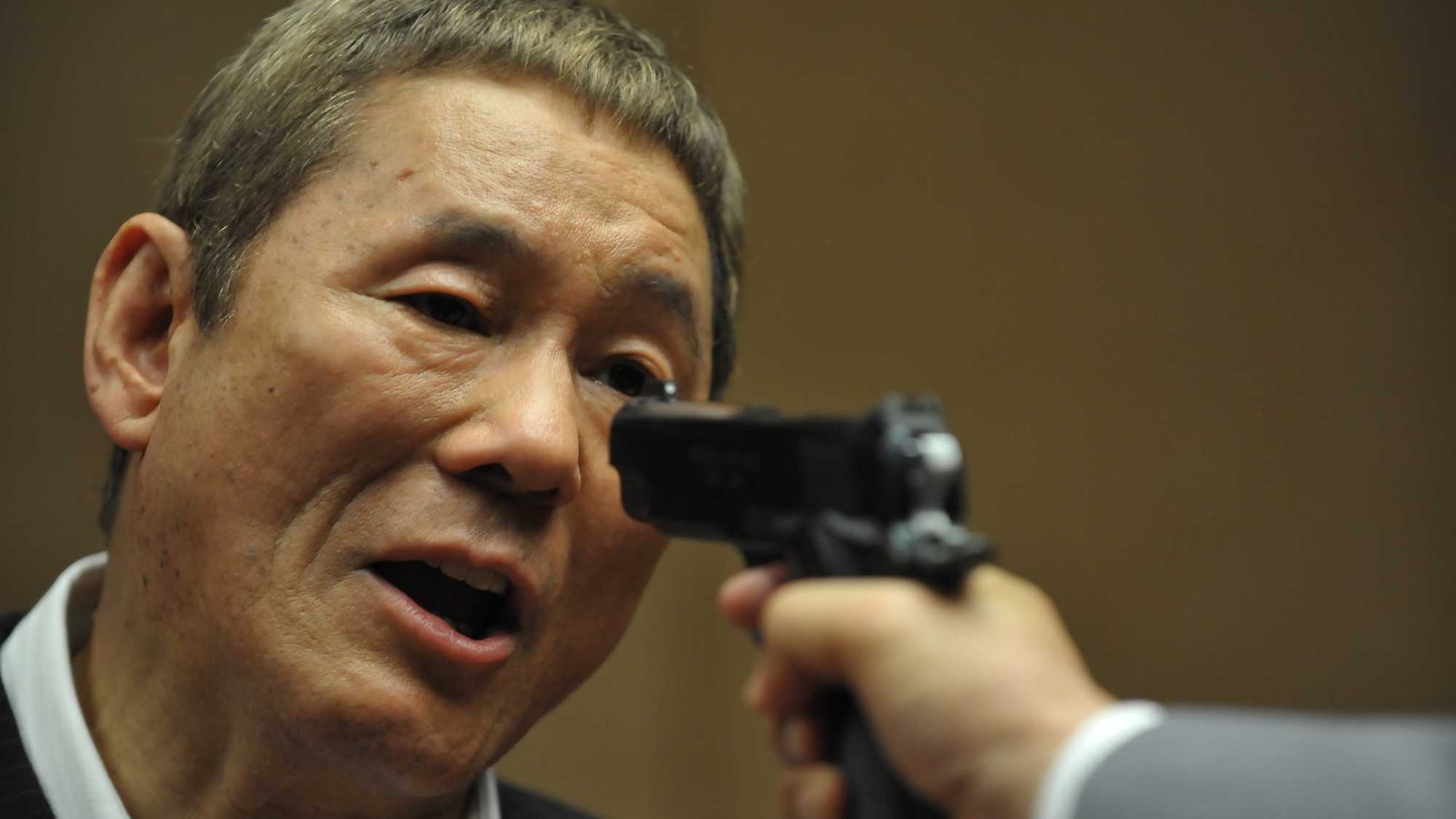A welcome return to form for Kitano Takeshi, Japan’s deadpan maestro of yakuza payback. “Extremely satisfying... Ultra-sparse, tough as nails, and wavering between droll and laugh-out-loud funny.” — Cinema Scope

Ultra-sparse, tough as nails, and wavering between droll and laugh-out-loud funny.
Screened as part of NZIFF 2013
Outrage Beyond 2012
Autoreiji Biyondo
Outrage Beyond marks a welcome return to form for Kitano Takeshi, Japan’s deadpan maestro of yakuza payback. Reviving characters from his 2010 Outrage, the plot of corporate-like gang war manipulated by a power-bent cop may actually make more sense if you don’t remember what happened in the first film. Kitano taps the menace in nervous anxiety with a connoisseur’s precision and relishes the comedy in giveaway flashes of testerical emotion. Postponing his own appearance until you’re good and ready for it, Kitano (who bills his acting self as Beat Takeshi) plays a gratifyingly leading role in the mayhem of betrayal and innovative score-settling. A baseball-pitching machine makes a memorable addition to the vocabulary of retribution.
“Unlike younger directors who make gang movies the way they make music videos, pounding from moment to moment, Kitano understands pacing and structure, character and mood... The actors seem to be thoroughly enjoying themselves, playing their bad-ass characters to the hilt, mostly without falling into wretched excess. It’s as though Kitano gave them a license to be cool, instead of the far more usual (in Japanese films at least) nice…
Now that the yakuza genre in its classic forms has almost vanished from the theaters, it was refreshing for this hard-core fan to see a film that understands its disreputable pleasures – and knows how to provide them. Striding out of the screening room, I felt cooler myself.” — Mark Schilling, Japan Times